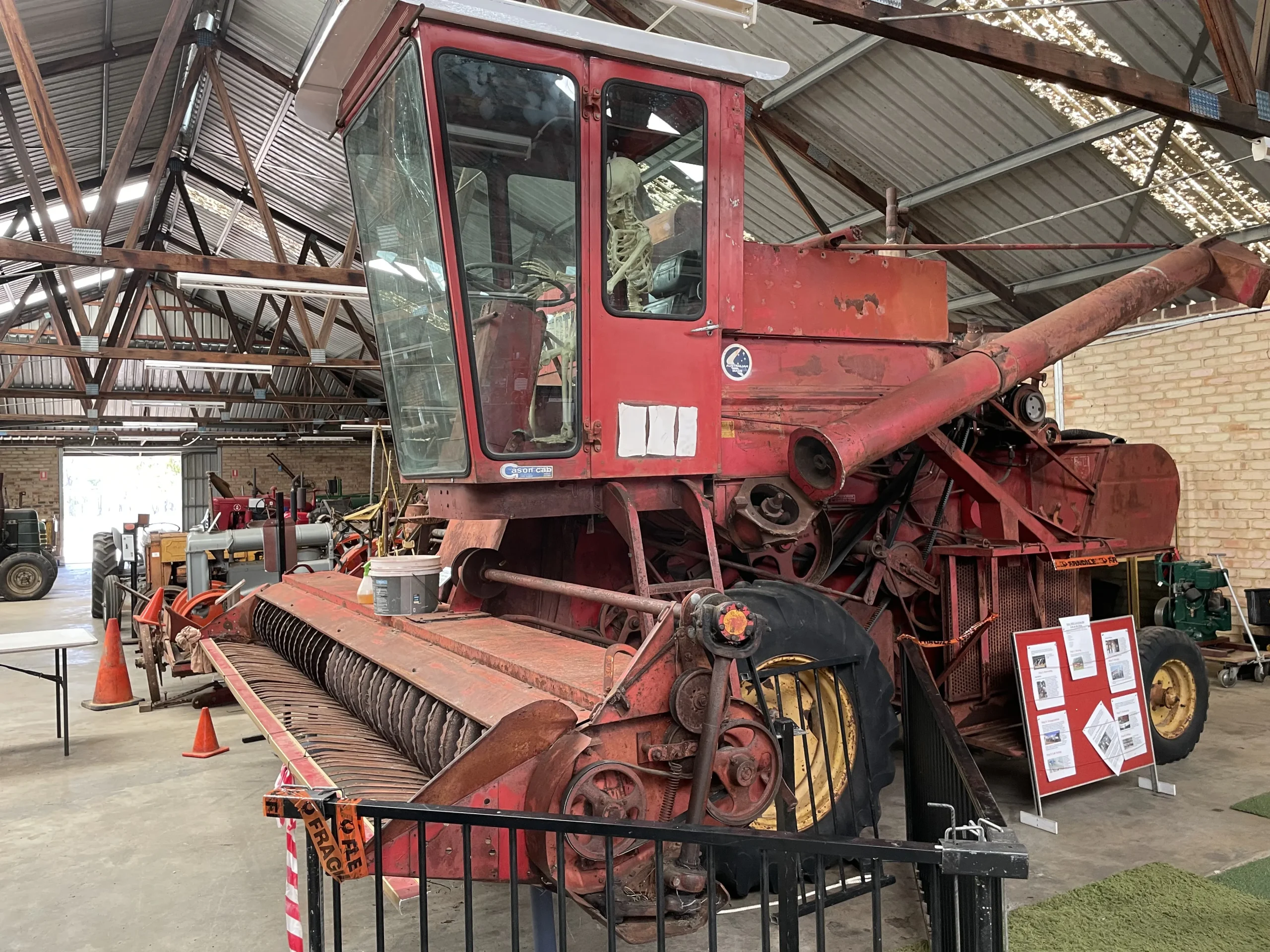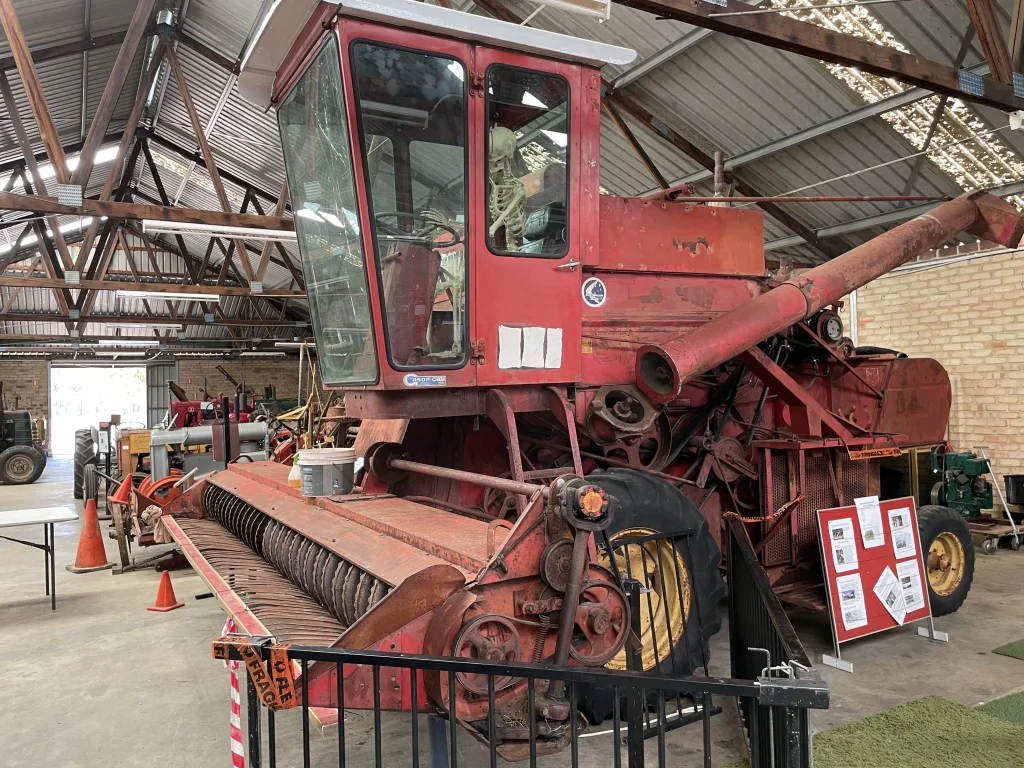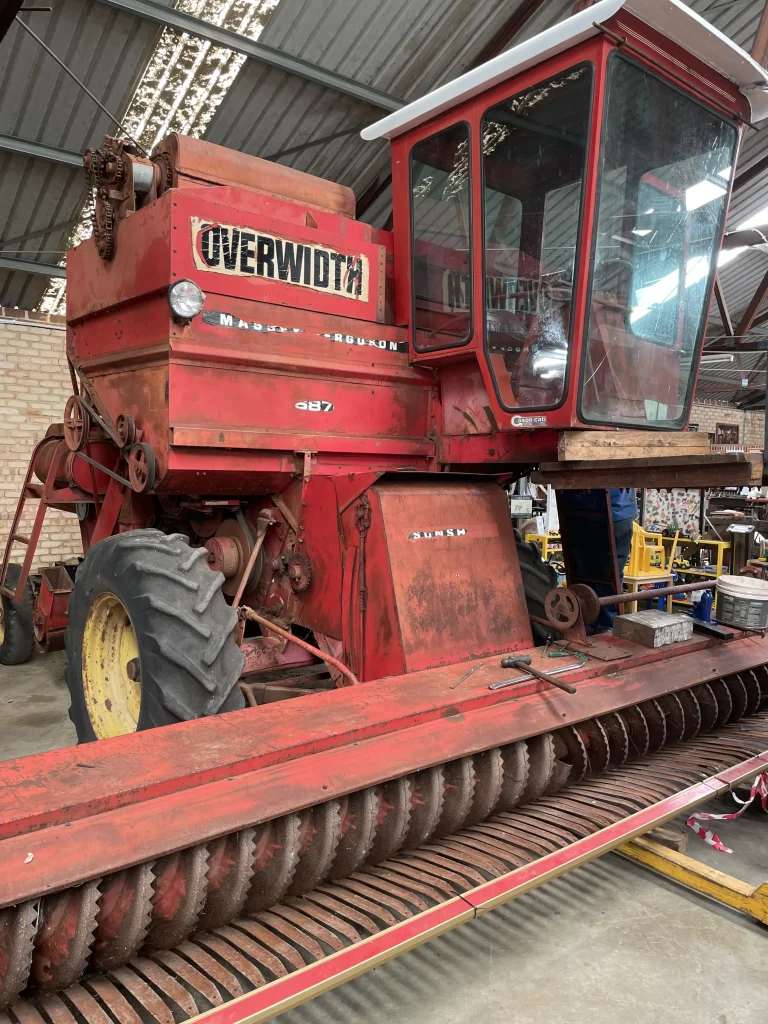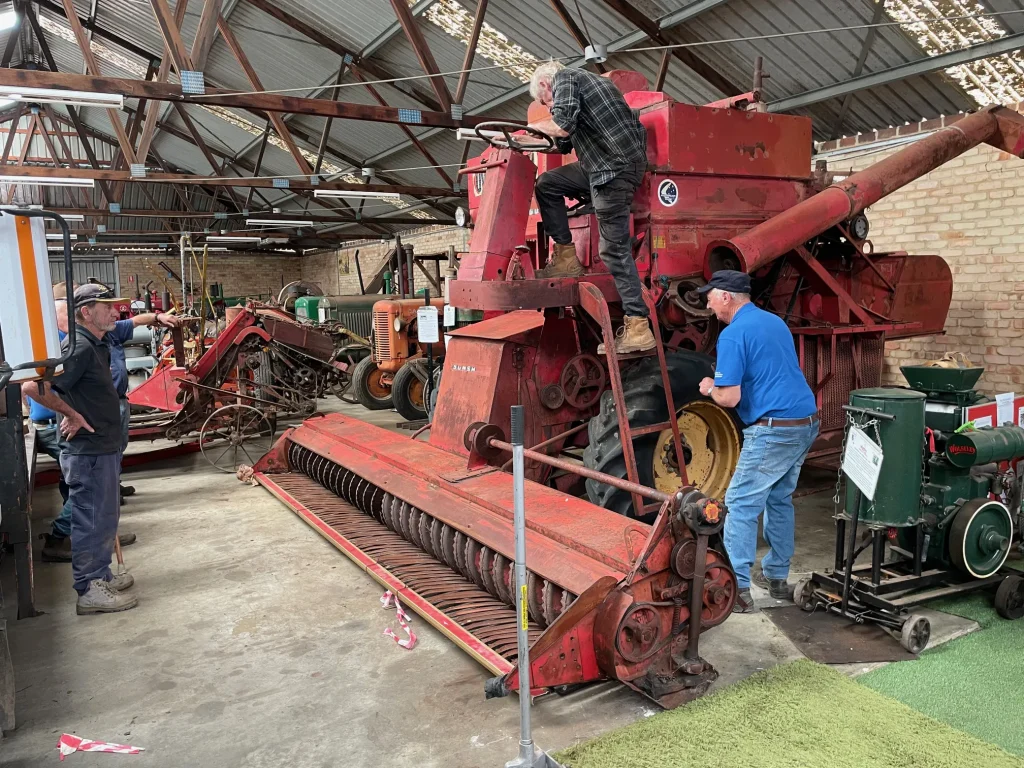Address
Wellard Street, Serpentine, WA, 6125
Work Hours
Mon-Tues: Closed
Wednesday: 9am-1pm
Thur-Fri: Closed
Sat-Sun: 10am-3pm
Public Holidays: 10am-3pm
Note: Closed on Good Friday and Christmas Day
Address
Wellard Street, Serpentine, WA, 6125
Work Hours
Mon-Tues: Closed
Wednesday: 9am-1pm
Thur-Fri: Closed
Sat-Sun: 10am-3pm
Public Holidays: 10am-3pm
Note: Closed on Good Friday and Christmas Day


The Massey Ferguson MF587 is a self-propelled Header made in Australia by Massey-Ferguson (Aust.) Ltd. from 1969 to1973.
The Headers were commonly called “Combines” due their ability to carry out the 3 functions of harvesting: Stripping, Threshing and Winnowing, that is cutting the heads of the crop, removing the seed from the heads, and then removing all the husk, leaving the seeds of the crop ready to bag or transfer to bulk storage.
Where the term “header” came from has interesting possibilities that we are exploring. It could be related to the fact that the modern “Combine” cuts the “heads” of grain. But the nickname could also be attributable to the name of the prolific inventor, Headlie Shipard Taylor who, according to historian Frances Wheelhouse, started with horse-drawn “headers” or combine harvesters in Australia in about 1914 and eventually teamed up with H. V. McKay to produce “headers” driven by a PTO from the pulling tractor. In 1924, they produced an Auto Header, a forerunner to the Header on display here.
Technical Specifications: Powered by a Perkins 4-cylinder diesel engine rated at 112 horsepower. Comb: 15ft length with wobble knife drive. Tyres: Rear tyres were 540/65R38, and front tyres were 440/65R28. Transmission: A road speed of 40 km/h was possible thanks to a 16×16 semi-powershift transmission with a clutchless shuttle shift.
The Header was kindly donated to the Museum by Kip Venn of Clackline W.A.


